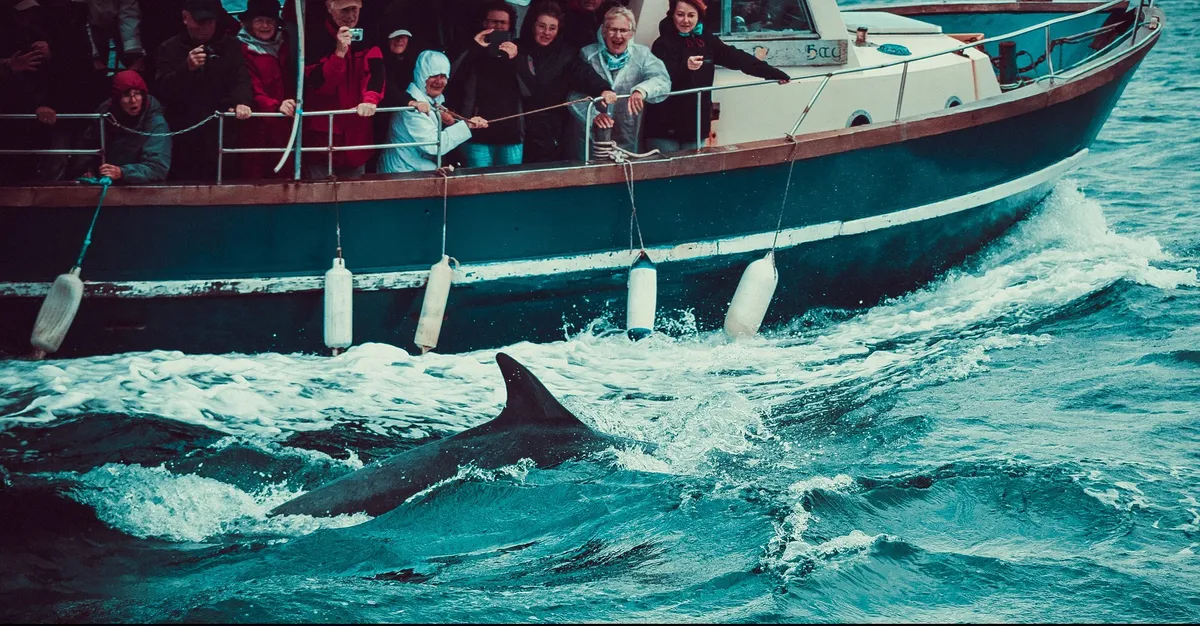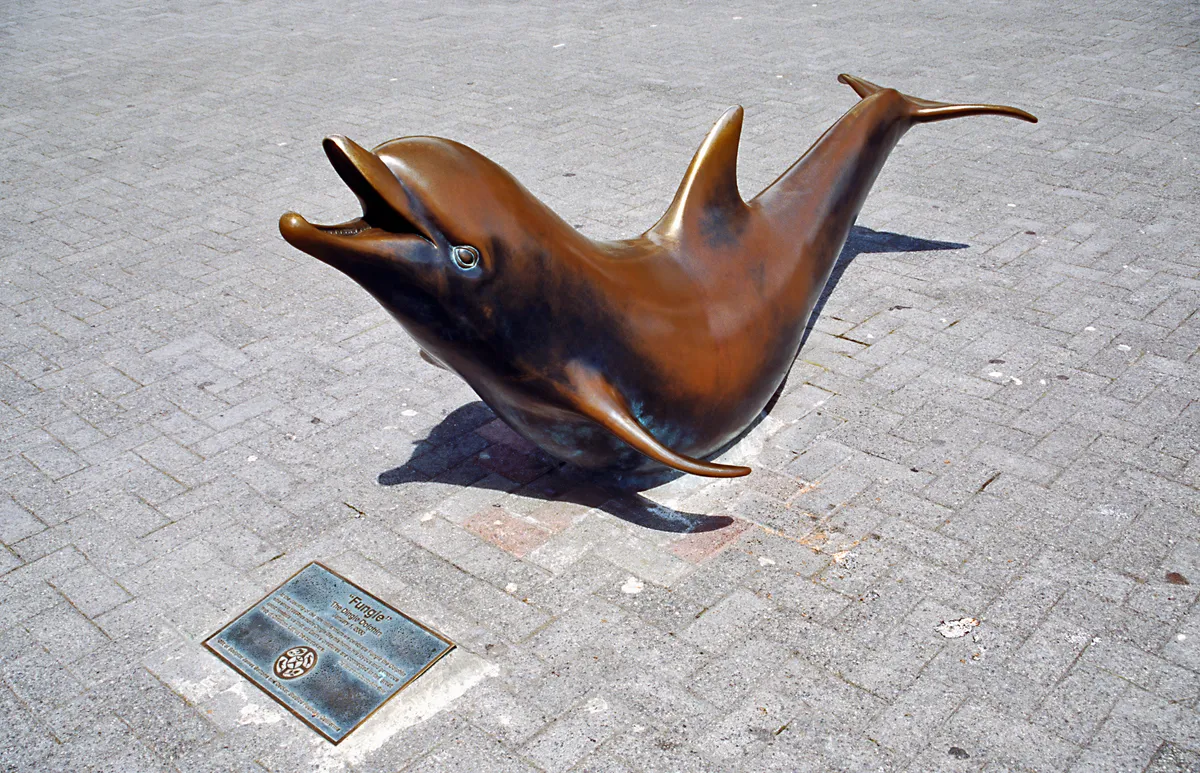A male Atlantic bottlenose dolphin named Fungie has secured his place in the record books as the longest lived ‘lone’ dolphin, as he is thought to be over 40 years old.
This venerable cetacean is well known to the residents of Dingle in County Kerry, Ireland. He was first spotted in Dingle harbour in 1983 and has continued to seek out human company ever since.

According to locals, he has never left the sheltered bay, choosing instead to interact with swimmers and surfers in the water, and swim alongside the tourist boats dedicated to viewing him.
Due to his unusually playful, friendly nature towards humans, he has become beloved by Dingle – becoming a symbol of the picturesque seaside town. People come to the area specially to see him, and he even has his own statue outside the tourist information office.

This world record came after the publication of the Lone Rangers report, a survey of the world’s documented lone whales and dolphins, produced by the cetacean charity Marine Connection.
Though often living in pods or small groups of two or three, bottlenose dolphins are by far the most likely to live a solitary life, according to the report.
Another Atlantic bottlenose dolphin, named JoJo, who has swum solo in the waters off Providenciales in the Turks and Caicos islands in the Caribbean since the 1980s, is also detailed. The date at which she was first sighted is debated, however, so her age cannot be verified.
Find out more about dolphins:
Main image. Fungie leaping in the bay. © Through the eye of a lens/Getty
